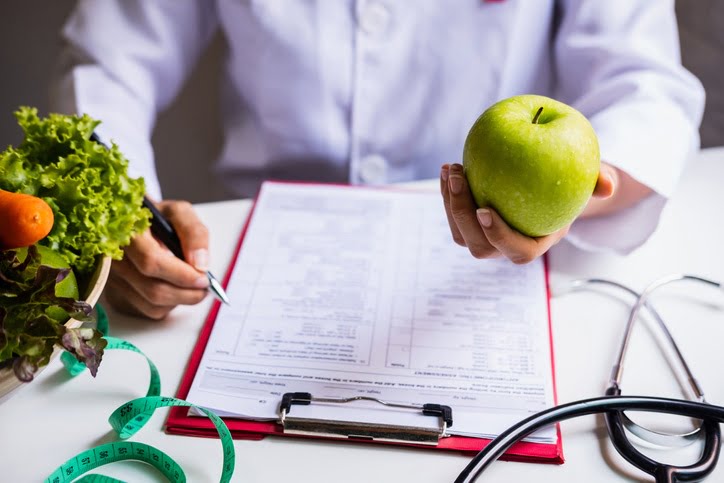
Gastric sleeve surgery is one of our most popular weight loss surgery options at Birmingham Minimally Invasive. There are many benefits and reasons to choose this surgery, including the fact that it is a cost-effective choice for many. It’s also a low-risk procedure with a high success rate.
We like to be as open and honest as possible, and this includes talking about the potential risks of any surgery and what recovery may be like.
What Happens During Gastric Sleeve Surgery?
Gastric sleeve surgery is a laparoscopic bariatric procedure that reconfigures the stomach into a sleeve-like shape. In doing so, we remove a part of the stomach responsible for producing ghrelin, the hormone, that tells your brain when you’re hungry. The surgery also restricts the size of the stomach, making it much harder to eat large portions of food. These two factors combine to help you lose weight.
What Are the Risks of Gastric Sleeve Surgery?
Overall, gastric sleeve surgery is a very safe procedure. Our surgeon, Dr. Jay Long, has performed the surgery many, many times. While it is a minimally invasive procedure, it is a significant inpatient surgery, which will always carry some risk. Here are the three main risks you should know about:
- Internal bleeding — Because of the nature of the procedure, internal bleeding is a risk. However, with so much experience performing gastric sleeve, we have great methods to correct and combat this risk. It is not a common outcome of the surgery.
- Infection — All surgeries carry some risk of infection, and gastric sleeve is no different. But infections from this procedure are very rare. If it does occur, we treat the infection with antibiotics.
- Eating too much after surgery — This risk is more specific to gastric sleeve surgery. Since it is a restrictive procedure, overeating after surgery can lead to severe abdominal pain and cramps. With overeating, you may also experience vomiting or diarrhea.
To avoid risk #3, our professionals at BMI Surgery will work with you along the way as much as possible. You will have a diet plan and all the tools and information you need to be successful. It will be a challenge in the beginning, but as time goes on, our patients typically get into a really good groove of knowing what to eat, what their body needs, and how to accomplish their goals.
What to Expect After Gastric Sleeve Surgery
Gastric sleeve surgery greatly reduces the size of your stomach and limits the amount of food that you can eat at one time. It does not cause decreased absorption of nutrients or bypass your intestines. After eating a small amount of food, you will feel full very quickly and continue to feel full for several hours. The procedure may also cause your appetite to decrease due to the removal of the hunger hormone mentioned above.
Depending on your pre-operative weight, you can expect to lose between 40 to 70% of your excess body weight in the first year after gastric sleeve surgery. Additionally, many obesity-related problems improve or resolve after the procedure. This may include diabetes, hypertension, obstructive sleep apnea, and abnormal cholesterol levels.
Gastric Sleeve Recovery
Because we remove a large portion of your stomach, it will take some time to recover. Exactly how long it takes you to get back to normal will depend on many factors, including your starting weight and what type of job you have.
You will be required to follow a strict post-op eating plan that will look similar to this:
- Stage one of the gastric sleeve diet: liquids — right after surgery
- Stage two of the gastric sleeve diet: protein-rich liquids — a few days after surgery
- Stage three of the gastric sleeve diet: pureed soft foods — approximately two weeks after surgery
- Stage four of the gastric sleeve diet: solid foods — approximately four weeks after surgery
Going through this diet plan while letting your body adjust is an extremely important part of recovery. Your body will learn new healthy habits, and most patients stay very motivated to continue eating in the way they should even after the post-op gastric sleeve diet is complete.
Three Tips for Success After Gastric Sleeve Surgery
The reality is that you will not be able to go back to your old eating habits, including eating unhealthy foods and eating too much. Your commitment to following your plan will play a huge role in your success. It goes much beyond the fact that your stomach is now smaller.
While there are many tips, tricks, and pieces of advice that we will provide you with when you have gastric sleeve surgery at BMI, here are three of the most important tips for success:
- Eat small portions — By eating small portions, you’ll be likely to absorb more of the nutrients in the food while also feeling full. You will also be less likely to experience any adverse effects of overeating.
- Eat slowly — You won’t feel as full or satisfied when you eat fast, which often causes people to eat more. By eating slowly, you will allow your body to tell you when it’s full.
- Only drink between meals — Liquids take up space in your stomach and make you feel full. When having a meal, you need this space for food to provide your body with important vitamins and nutrients. Drinking during non-meal times is often very helpful.
As you can see, there are many good things we can say about gastric sleeve surgery. While there are some challenges and risks, we have many tools to make sure you experience no complications or negative consequences of the surgery. We will do everything we can to help set you up for success!

